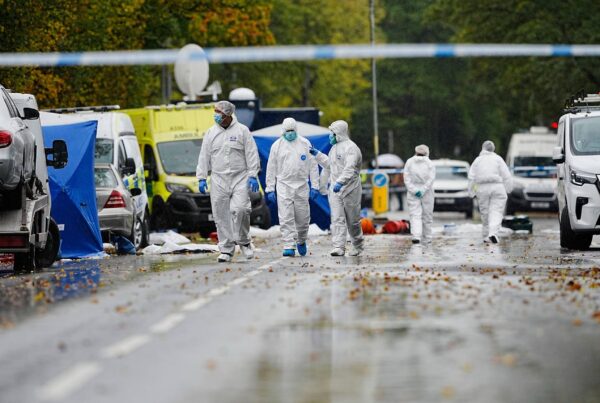The Labour Party’s annual conference in Liverpool opened under mounting pressure, with Prime Minister and Labour leader Keir Starmer confronting growing doubts about his leadership. Falling polls, heated debates on fiscal policy, and deep divisions over Gaza have created a volatile atmosphere, sparking discussions about a possible leadership challenge. While Starmer urged unity, describing the fight against Reform UK as “the fight of our lives,” the conference revealed deep fractures that Labour can no longer ignore.
At the center of attention were both internal disputes and external threats. Polling data showing Reform UK overtaking Labour in voter preference fueled speculation about Starmer’s future. Meanwhile, calls from grassroots members and unions to abandon strict fiscal rules and take a stronger stand on Gaza created a combustible mix of politics and ideology. The conference, intended as a show of strength, turned into a litmus test for Starmer’s ability to lead.
Mounting Pressure on Labour Leadership
Labour’s leadership finds itself at a crossroads. For months, the party has struggled to maintain momentum in the polls as Reform UK capitalized on voter dissatisfaction. What was once a comfortable lead has evaporated, exposing Starmer to critics inside his own ranks. Against this backdrop, Liverpool became a stage for political maneuvering that could shape Labour’s future.
Two central issues dominated the conversation: Starmer’s declining approval ratings and the internal battle over fiscal policy. Both are deeply intertwined, as members question whether current strategies are sufficient to inspire voters. The more these debates resurface, the more Starmer’s authority is tested in public.
Polling Collapse and Reform UK Surge
Recent polling data marked a turning point. According to Ipsos, Reform UK now leads Labour by several points, with some projections suggesting they could secure more than 300 seats if elections were held today. Such numbers shocked many inside Labour, who had expected Reform’s rise to be temporary.
Commentators warn that the situation mirrors historic collapses where dominant parties underestimated insurgent rivals. Starmer’s critics argue that his cautious approach has alienated both progressive supporters and centrist voters. For many, the conference was less about celebrating Labour’s achievements and more about confronting the existential threat of losing ground to the right.
Grassroots members expressed frustration, with one delegate noting that “Labour promised change, but all we see is hesitation.” Analysts suggest this dissatisfaction could fuel attempts to unseat Starmer if trends continue.
Keir Starmer’s Unity Message
In his keynote remarks, Starmer called for unity. He framed the battle with Reform UK as not just electoral but moral, branding their proposal to revoke indefinite leave to remain as discriminatory. His language was direct: “This is the fight of our lives.” Yet his words struggled to dispel speculation about his political future.
While some delegates applauded the clarity of his message, others whispered about succession. Critics suggested that rhetoric alone cannot reverse the polls, especially without bold policy shifts. Starmer’s challenge is clear: convince both the public and his party that he remains the right leader for the times.
Internal Divisions Over Fiscal and Social Policy
The economic debate at the conference further exposed Labour’s fault lines. On one side stood Starmer and Chancellor Rachel Reeves, committed to fiscal discipline to reassure markets. On the other side were unions and left-wing factions demanding more ambitious spending to address social inequality.
This conflict played out in motions debated on the conference floor, with calls to lift austerity-era caps and expand welfare. These proposals clashed with Reeves’ insistence on restraint, raising questions about whether Labour can maintain coherence on economic policy.
Fiscal Discipline Versus Social Investment
Rachel Reeves has repeatedly emphasized that fiscal responsibility is essential to maintain credibility with international markets. Her allies argue that reckless spending would risk economic instability and undermine Labour’s recovery. “We cannot gamble with the economy,” Reeves declared in closed sessions.
Unite and other unions sharply disagreed. They argued that fiscal caution translates into broken promises for working families. Union leaders insisted that Labour cannot defeat Reform UK by offering austerity-lite policies. Instead, they called for bold investments in healthcare, education, and infrastructure.
The clash reflects a deeper struggle over Labour’s identity. Should the party prioritize market confidence or grassroots demands for social justice? So far, Starmer has sided with caution, but at the cost of alienating a key portion of his base.
Policy Debates on Welfare and Gambling
Beyond fiscal rules, specific policies sparked intense debate. Delegates pushed to scrap the two-child benefit cap, describing it as punitive and unjust. Campaigners also lobbied for a ban on gambling advertisements, citing public health concerns.
These proposals highlight the tension between Labour’s progressive instincts and the leadership’s cautious strategy. While popular among activists, they risk being perceived as costly or controversial by swing voters. The conference revealed how difficult it will be for Starmer to balance these competing demands.
Gaza Conflict and the Party’s International Stance
The Gaza conflict emerged as another flashpoint, polarizing Labour members and exposing fractures between leadership and grassroots. Pro-Palestinian groups staged protests outside the conference, with police arrests underscoring the intensity of sentiment. Inside, delegates demanded emergency debates on Palestine, challenging the leadership’s cautious foreign policy stance.
The issue is more than symbolic. Labour’s position on Gaza resonates deeply with its activist base and could influence its appeal among minority communities. Yet it also risks alienating voters who prefer a more measured approach.
Protests and Grassroots Anger
The protests outside Liverpool’s venue reflected the passion of Labour’s base. Activists waved Palestinian flags and accused the leadership of failing to stand up for human rights. Arrests only heightened the sense of confrontation, with campaigners accusing the party of ignoring its members.
Inside the hall, delegates echoed these frustrations. Some demanded Labour adopt a tougher line against Israel and commit to stronger humanitarian advocacy. These voices clashed with Starmer’s cautious diplomacy, creating an image of a party divided not just on economics but on morality.
Grassroots anger over Gaza also feeds into the broader narrative of dissatisfaction. Critics accuse Starmer of being too hesitant, too eager to avoid controversy, and too detached from the values that once defined Labour.
Foreign Policy and Leadership Risks
The Gaza debate carries risks for Starmer beyond the immediate headlines. Foreign policy divisions often reveal deeper rifts in party values. By resisting calls for a bolder stance, Starmer risks being portrayed as indifferent to humanitarian suffering.
Moreover, the issue intersects with leadership tensions. Potential challengers could seize on Gaza to rally support, presenting themselves as voices of conscience. This dynamic increases the pressure on Starmer, whose leadership now faces scrutiny from multiple directions.
Rising Figures and Potential Challengers
Beyond policy debates, the Liverpool conference gave visibility to figures who could one day challenge Starmer. Andy Burnham, Mayor of Manchester, stood out with remarks criticizing the “climate of fear” inside Labour. While he denied plotting a coup, his willingness to speak openly signaled that leadership debates are no longer taboo.
Other figures, including influential union leaders, positioned themselves as alternatives to the current leadership. Their critiques resonate with a membership restless for change.
Andy Burnham’s Bold Intervention
Burnham’s comments reverberated across the conference. By denouncing the stifling culture of debate within Labour, he tapped into frustrations shared by many members. His denial of personal ambition did little to quiet speculation about his future role.
Observers note that Burnham’s strategy is calculated. By speaking out without declaring candidacy, he builds credibility as a truth-teller while keeping options open. His intervention was widely seen as a warning shot to Starmer: leadership loyalty is no longer guaranteed.
Union Power and Influence
Unions remain central to Labour’s internal politics, and their dissatisfaction with fiscal policy adds to Starmer’s challenges. Leaders like Sharon Graham of Unite argue that the party risks irrelevance if it continues to prioritize markets over people.
Their influence at conference is substantial. Through votes, funding, and grassroots mobilization, unions can tilt the balance in leadership contests. The rumblings from union leaders serve as a reminder that Starmer’s future may depend as much on internal alliances as on public opinion.
The Labour Party’s Liverpool conference was meant to showcase unity and vision but instead exposed deep divisions. Leadership doubts, fiscal disputes, and the Gaza crisis converged to create an atmosphere of uncertainty. Starmer remains in control for now, but his authority is weakened, and challengers are circling. Whether he can turn this crisis into renewal will determine not only his future but the direction of the Labour Party itself. For readers following this story, Olam News will continue providing updates and in-depth analysis on UK politics and global developments.




